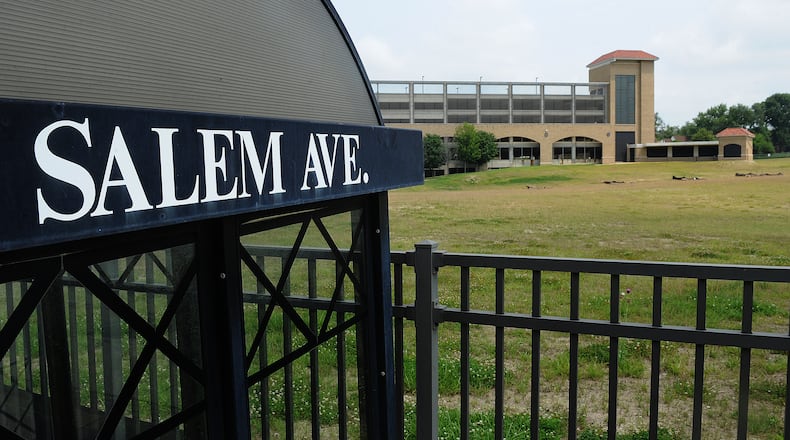Since the hospital was closed in 2018 and torn down, a group called Phoenix Next has been building a plan for what’s next for the 13-acre site. Good Samaritan was operated by parent company Premier Health, and Premier representatives are on the board of Phoenix Next along with representatives from the city of Dayton and local residents.
Phoenix Next announced Wednesday that Premier has committed to building a 12,000-square-foot health medical center on the site that will have an urgent care center, physician offices, physical therapy and lab services and medical imaging.
“This is what the community is telling us that we need, and from Premier’s perspective, we have said all along that we are committed to providing health care services to the communities that we serve,” said Eloise Broner, chair of the Phoenix Next Dayton board.
Broner said this announcement is the first in a multi-step process.
This project would lead to the construction of one new building on the site. The goal of Phoenix Next however is for this to be one of many projects and to attract others to invest in the Salem Avenue site.
According to Phoenix Next organizers, other organizations have expressed interest in locating at the site and they are seeking to get the property fully redeveloped.
Dayton City Manager Shelley Dickstein said Premier’s investment will create confidence in that site and should attract additional investor interest. There are “a few things in the pipeline that are pretty promising,” Dickstein said.
“I’m super pleased about the re-commitment to West Dayton with Premier Health to invest in health care services where they’ve identified gaps in services,” she said.
Dayton Mayor Nan Whaley said Premier listened to community members who made it clear that they want health care services in that area.
“I don’t think this was in the original intent at all (for that site) but I think this is what the community wanted and they listened to that,” Whaley said.
Phoenix Next
Phoenix Next was formed in 2018 to lead redevelopment of the hospital site and the surrounding area.
Phoenix Next representatives said the feedback they received showed people wanted the site to be used for health and wellness services and next-generation learning. Broner said the new facility will follow that vision for health and wellness and will be consistent with the trend of more patients seeking health services through outpatient services.
In December 2019 Premier Health and city of Dayton pledged a combined $30 million to redevelop the former Good Samaritan Hospital site and surrounding neighborhoods.
Broner said it wouldn’t have worked to retrofit the former hospital for these services because the Good Sam buildings were outdated and Phoenix Next wanted to make sure the site was appropriate for what is happening in health care today.
“Health care is moving to outpatient services, and it would be impossible to retrofit an inpatient facility for those services,” Broner said.
Controversial closing
Good Samaritan Hospital was open for 85 years and employed 1,600 people at the site before it closed in July 2018. Premier officials said it couldn’t justify maintaining a second hospital in a city with a declining population, declining demand for inpatient services, and significant need to update the Good Sam campus had it remained open. Premier also operates Miami Valley Hospital on Main Street near Dayton’s downtown.
The decision to close the hospital received push back from some residents and city leaders concerned about the loss of medical services like the emergency department and the loss of jobs on the site.
A group of clergy filed a federal civil rights complaint claiming the decision to close Good Sam violates the civil rights of Black residents served by the hospital. In a later expansion of the civil rights complaint, they noted Premier spent millions of dollars in recent years building in other parts of the region where the populations are majority white and wealthier.
When filing the complaint, the clergy’s position was Premier should continue to provide major health care services at the Good Samaritan site or the hospital should have been maintained and made available to be transferred to another organization.
Ellis Jacobs, attorney with ABLE representing the Community Clergy Coalition, said they are have no plans to drop the complaint. He also said Premier Health’s plan to host services at the former hospital location is good for the community, but wants to ensure the clergy has the chance to provide input.
“This is an important step for what Premier just announced and I believe that the Community Clergy Coalition wants the opportunity to sit down with Premier to talk about what they really have in mind,” he said.
Reporters India Duke and Cornelius Frolik contributed to this report.


